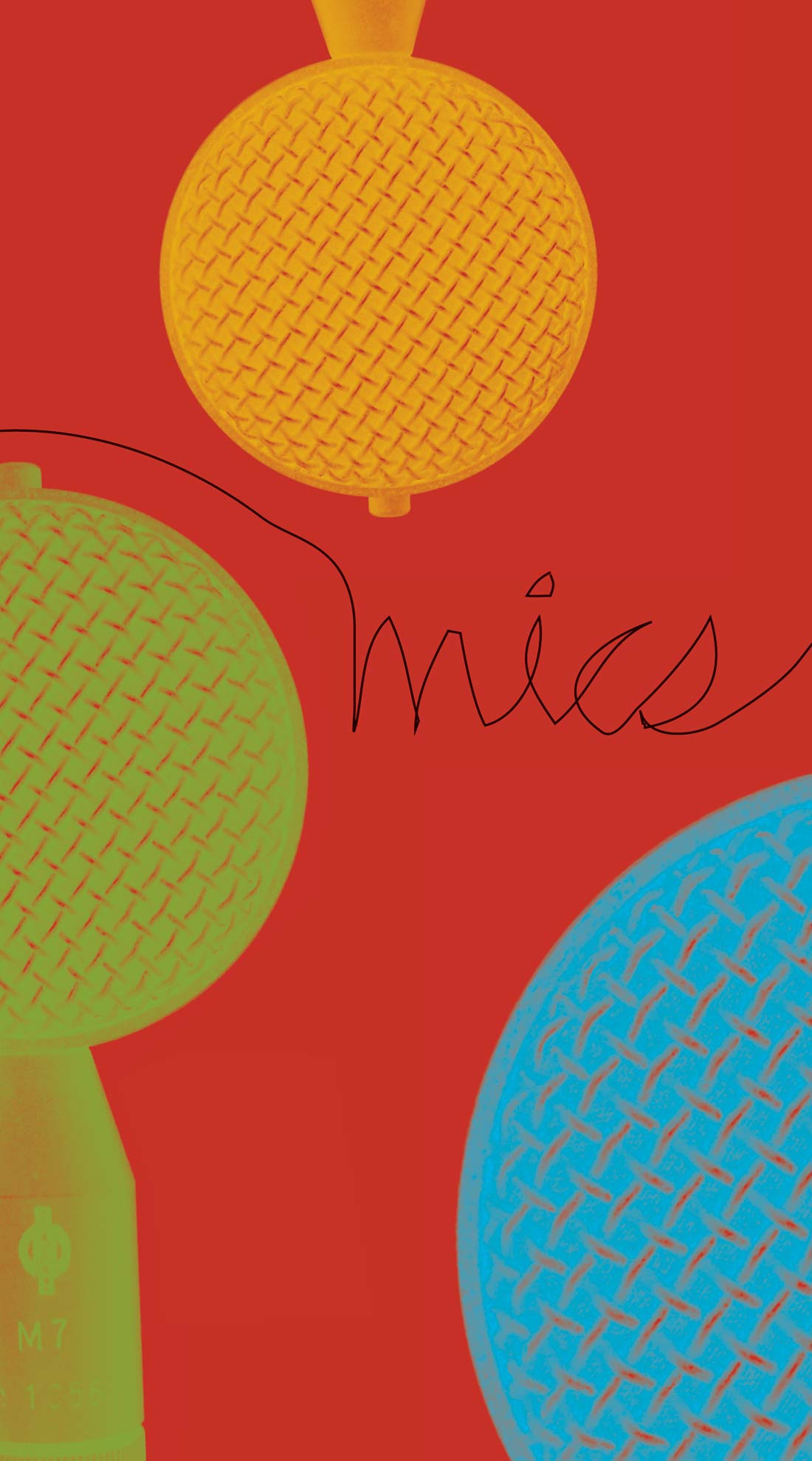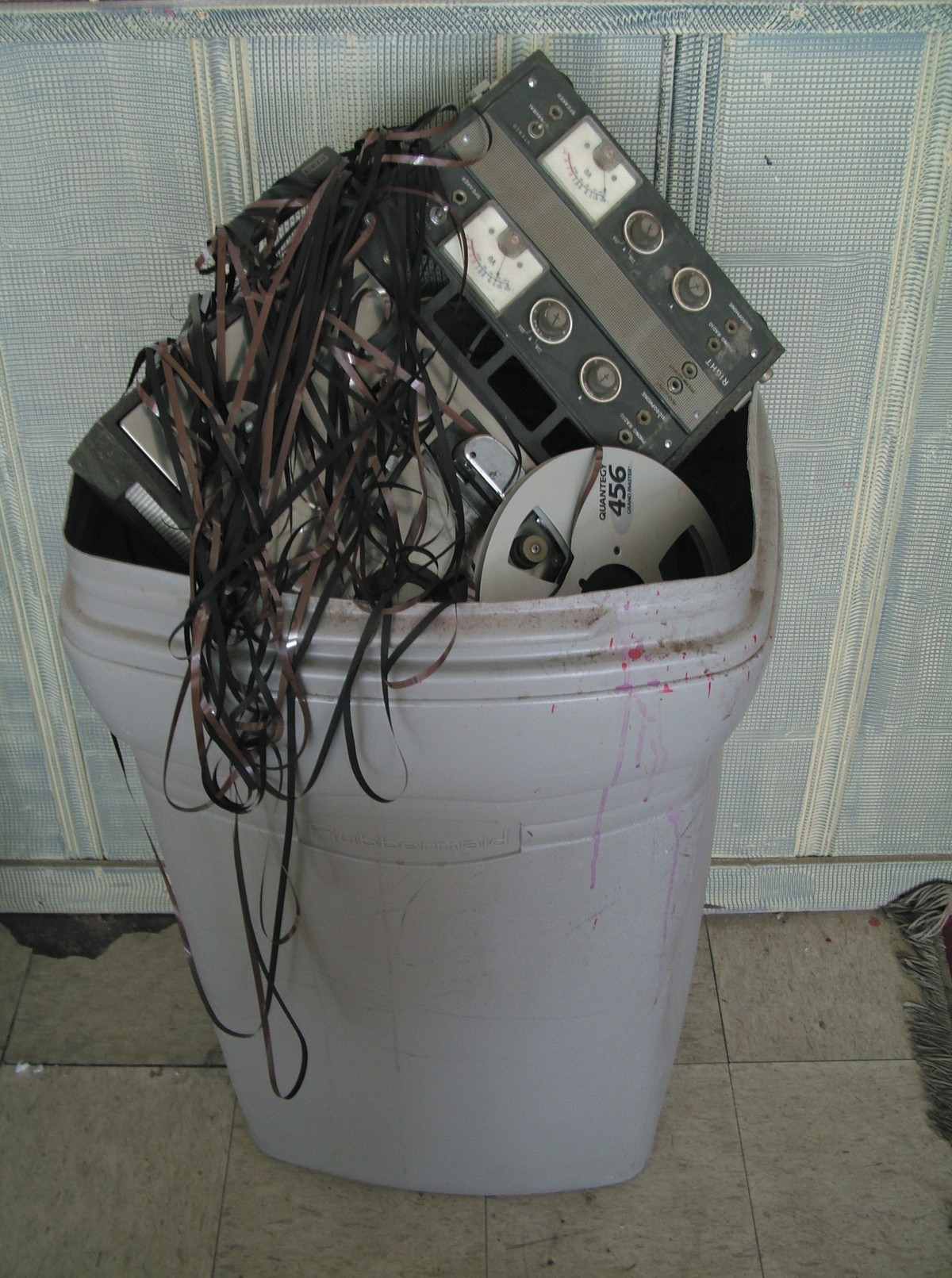At the beginning of this year the only professional audiotape manufacturer left in the world closed its doors. Quantegy had outlasted all of its competitors — there was no more EMTEC/BASF, 3M/Scotch, AGFA — but the loss of the videotape and cassette markets to the optical disc and the lowering cost of digital storage created a situation where it was hard for this once-huge company to keep its doors open.
Cello Studios, located for six years in the space that had once been (United) Western Recorders (and later part of Ocean Way) at 6000 Sunset Boulevard in Los Angeles, closed January 28th. This historic place was supposedly the birthplace of more hit records than any other studio in the world.
The Hit Factory in New York City announced February 2nd that they would close by the end of the month as well. This seven-room facility had hosted clients like U2, Stevie Wonder and Wu-Tang Clan.
What's going on?
The cost of setting up a studio has dropped drastically due to digital recording technology. We saw this start with the ADAT in 1991 and the development of the affordable Mackie consoles. How many small studios suddenly showed up wielding this equipment? Many. After ADAT, the DAW slowly crept up from being a two-track editor or MIDI sequencer to a full-blown tracking and mixing platform. As digital storage mediums have gotten cheaper and computers become faster the whole system started to take over from analog as the new way to record for both professionals and hobbyists.
Studio rates have been lowering over the last few years. Rooms in "big time" studios that used to command $1200 are easily found for $500 or less these days. Clients that used to spend four months in a professional studio on big-budget major label releases are apt to build their own studios or only book basic tracking or mixing time instead of booking these places for long-term projects.
The business model of "We have the technology needed to make records — you don't" is gone. This model allowed many studios to charge whatever prices they could. Hell, most of the time they were billing record labels directly — labels that were making plenty of money on a handful of artists that sold multiple millions of records. The labels now blame illegal downloading (wasn't it home taping in the eighties?) on the loss of their former profits. I'll blame cable, DVD, videogames, home computers, overpriced concerts, sports events and many other entertainment choices on the diverting of the consumer's entertainment capital. Plus, the revenue of making us repurchase our LP collections on CD has finally dried up as well.
We can also blame the lack of quality music coming from the big labels — who wants another shit-ass Britney clone or petulant actress-turned-singer who can't sing? Not many adults do. Of course, the labels have been trying to get the older demographic to repurchase their CD collection now as SA-CD, DVD-Audio or even 5.1 mixes. I don't think it's gonna happen in a big way though, and it looks like the budgets for these have been dwindling in many cases.
Anyway, back to where I was. These studios made the classic business mistake in thinking that the business climate would never change. Even as a small studio owner I've seen a change. Calls from brand new bands wanting to do quick demos to get gigs and write-ups in the local calendars don't come in anymore. They invariably do these initial recordings with a buddy who has some sort of small DAW system in a home studio. That's fine for a small studio like mine though. I've learned to keep busy by offering quality drum and basics tracking sessions to tape/then dumped to Pro Tools, by mixing a lot of home-recorded sessions for release and by teaching recording workshops to classes made up entirely of home recordists.
Did places like The Hit Factory and Cello have the ability to shift their business like this? No. My only experience with "big budget" recording was sitting in on Elliott Smith's sessions for XO for a week at Sunset Sound. For these sessions I believe the basic rate for us being there was $1200 per day. That didn't include the gear rental, meals, beer stocking and more. I cannot imagine how much money was spent making this album, but considering he'd barely even used a "real" studio for any of his previous three solo records it seemed like a rather large jump. For me, though, even as an observer, the thought of $1500 a day going out the door made me nervous. When sessions would stall over an idea or more interviews for his Oscar nomination, I'd get jumpy as my experiences with recording made me painfully aware of the clients whom I owed it to to work fast and get as much done as possible.
Would a studio like this (and Hit Factory always cost a lot more!) be able to offer recording workshops to make money? No, they'd lose money. Would they be able to track drums for home projects? Maybe some, but these would most likely be people with already large budgets who'd built fairly extravagant home studios. Would they be available to mix other projects? Sure, for clients like Wu-Tang who had money to burn and wanted to impress their posse. But this is back to the whole problem — these studios expected these clients to move in for six months and spend a lot of money. Now they don't.
So imagine that you have a modest home recording setup with digital equipment. You need better drum sounds so you go to a local studio. They tell you the drums can be tracked to tape and you're excited. You also realize you don't have any way to play the tape at home. You eventually end up borrowing or renting the tape and going home with wave files. Did the tape company make any money on you? Not really, as the tape will be reused. What would you have done 15 years ago? Probably the whole project at this studio, on tape that you bought.
What's gonna happen?
It appears that RMG International in Oosterhout, The Netherlands, has all the old EMTEC/BASF tape-making equipment and will be delivering tape in April 2005, though I can't seem to find out how we will purchase it in the US. ATR Magnetic Tape has announced they will be delivering tape no later than June 2005. Plus there's still all the old tape making equipment in Opelika, Alabama, that may get kicked back into service soon. Remember, the pro tape market may seem slim to some, but it's a six-million dollar a year industry. Someone will want to be part of that, even if it gets slightly smaller over time. The only downside is that the price of tape will probably be higher.
In terms of studios, it would seem that smaller, versatile and community-orientated types might be more apt to survive. We can lament the loss of historic rooms like Cello/Western, a place that should rightly become a museum if it doesn't keep functioning as a studio, but just as the government's funding of the sinking airline business makes me nervous, I don't see why a studio should just stay open because we are afraid of change. For me the loss of the Hit Factory is different than that of Cello. I had the opportunity to tour this gigantic facility a few years back. A more boring, soulless place for making records I cannot imagine. Musicians usually want comfortable and inspiring places to make records.
What about the musicians? In my opinion, they are the ones who will eventually benefit from all this. As the big record labels flounder and drop "marginal" artists who don't sell a million albums, these people retreat to smaller labels that care about music or even start self-releasing their own CDs via websites and places like CD Baby. Smaller studios that do fantastic work have existed for years. Now there are just more of them. Artists can record albums at lower costs than ever, and the cost of self-releasing a CD has never been less. Because these artists now have so many choices available they also wield more power than ever. It's their choice of how and where to record that determines which studios remain busy. This makes it obvious that running a successful studio includes treating clients with more respect than ever and making sure to get that word of mouth and repeat business.
And there are many changes afoot for the recording industry. The large studios and tape companies might be going away, but many of us are firmly entrenched in the recording world and are the ones who'll see it through.
P.S.: Come to TapeOpCon this June in New Orleans where we will be forging ahead in this world and discussing the issues that affect us. www.tapeopcon.com
Thanks to John B and Pat Kearns for feedback on this piece.


